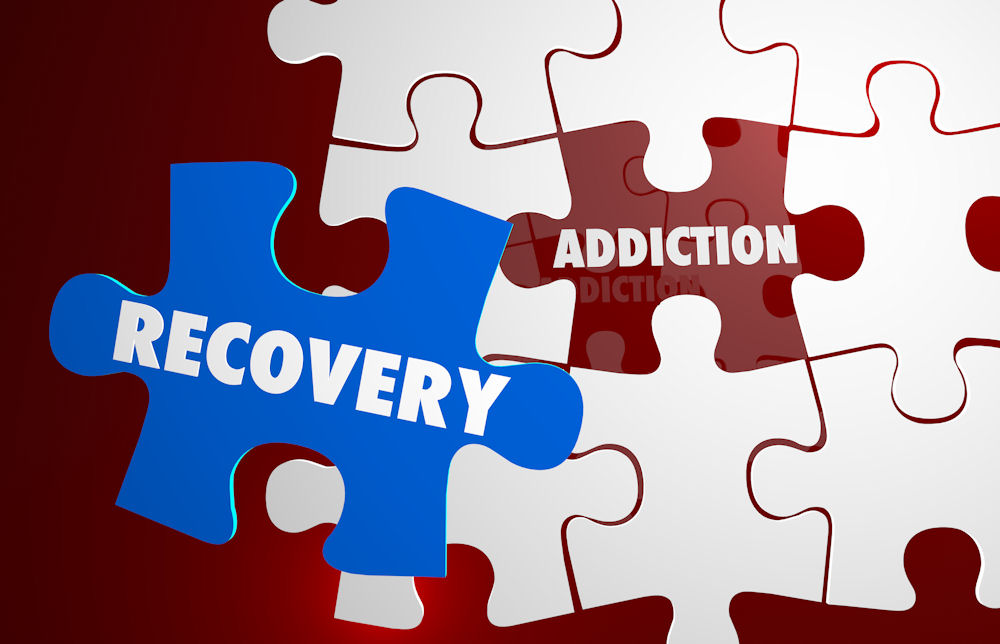On August 8, 2024, the Portland Police Bureau (PPB) made headlines with a massive drug bust that ranks as one of the largest single-day seizures in the agency’s history. The operation, which took place on Interstate 5, led to the confiscation of a staggering amount of illegal narcotics, marking a significant victory in the ongoing battle against drug trafficking in the region.
It’s fortunate that the drugs were seized but this drug bust highlights the serious issue of opioids being brought into the city and fueling the heroin and fentanyl crisis in our city. Crestview Recovery treats all types of opioid use in our comprehensive addiction programs, we also work to provide news and resources to support family, friends, and residents of Portland who will be affected by drug use.
Largest Drug Bust in PPB History
This unprecedented bust was the result of a meticulous investigation carried out by the Narcotics and Organized Crime Unit, along with the High-Intensity Drug Trafficking Area (HIDTA) Interdiction Task Force. The operation, which targeted a vehicle on the I-5 corridor, led to the seizure of 90 pounds of methamphetamine, 11 pounds of fentanyl, and 3.8 pounds of heroin. The street value of these drugs is estimated to be around $2 million, highlighting the scale and seriousness of the trafficking operation.
The PPB’s Narcotics and Organized Crime Unit, in collaboration with the HIDTA Interdiction Team (HIT), has long focused on disrupting the flow of narcotics into Portland. This recent bust underscores the effectiveness of their efforts, while also highlighting the persistent challenge posed by drug trafficking networks that target the region.
What Drugs Did Portland Police Seize?
The drugs seized during this operation include methamphetamine, fentanyl, and heroin—three of the most dangerous and widely abused substances in the United States. These are also three of the most used drugs in Oregon.
Methamphetamine: Methamphetamine, or meth, is a powerful stimulant that has devastating effects on individuals and communities. It is highly addictive and often leads to severe physical and mental health issues.
Fentanyl: Fentanyl is a synthetic opioid that is significantly more potent than heroin or morphine. Even a small amount can be lethal, making it one of the most dangerous drugs on the market. Its presence in Portland underscores the growing opioid crisis in the region.
Heroin: Heroin, another opioid, has long been a scourge in communities across the country. It’s highly addictive nature and the severe withdrawal symptoms it causes make it particularly difficult to combat.
How Do Drugs Get into Portland?
Portland’s strategic location along the Interstate 5 corridor makes it a prime target for drug traffickers. The I-5 highway, which stretches from the Canadian border to Mexico, is a major route for the transportation of illegal narcotics. Vehicles traveling along this corridor can easily move large quantities of drugs into the city and distribute them throughout the region.
The Portland Police Bureau and the HIDTA Interdiction Task Force have identified the I-5 corridor as a critical point of entry for drugs into Portland. This has led to increased surveillance and enforcement efforts along this route, with the goal of intercepting narcotics before they can reach the streets.
HIDTA Interdiction Team (HIT) in Portland, Oregon
The HIDTA Interdiction Team (HIT) plays a crucial role in combating drug trafficking in Portland. HIT is a multi-jurisdictional task force that brings together resources from various agencies, including the Portland Police Bureau, Homeland Security Investigations, Oregon State Police, Internal Revenue Service, United States Postal Inspection Service, Amtrak Police, and the Oregon National Guard Counter-Drug Task Force.
This collaborative approach allows HIT to effectively target and dismantle drug trafficking organizations operating in the region. By pooling resources and intelligence, the task force can conduct comprehensive investigations that span multiple jurisdictions, making it more difficult for traffickers to evade detection.
The Oregon-Idaho HIDTA program, which supports HIT, is part of a broader federal initiative aimed at reducing drug trafficking in areas with high levels of drug-related activity. The program provides funding and resources to support local law enforcement efforts, ensuring that they have the tools they need to combat the flow of narcotics into the region.
How This Affects You

The influx of illegal narcotics into Portland poses significant risks to residents. The availability of methamphetamine, fentanyl, and heroin not only endangers the lives of those who use these substances but also contributes to a range of social and economic problems in the community.
Fentanyl, in particular, is a growing concern due to its extreme potency. Even a small amount can cause a fatal overdose, putting both users and those who come into contact with the drug at risk. The presence of fentanyl in the community increases the likelihood of accidental exposure, making it a public health crisis that affects everyone.
Heroin and methamphetamine also pose serious threats. These drugs are highly addictive and can lead to a range of health issues, including heart problems, mental health disorders, and infectious diseases. The spread of these drugs contributes to crime, homelessness, and a strain on local healthcare resources.
Recognizing the signs of fentanyl abuse is critical in preventing overdoses and saving lives. Some common indicators include:
Extreme drowsiness or fatigue: Fentanyl is a powerful sedative, and users often appear unusually tired or sluggish.
Constricted pupils: Opioid use, including fentanyl, typically causes the pupils to become very small.
Slowed breathing or respiratory distress: Fentanyl can depress the respiratory system, leading to dangerously slow or shallow breathing.
Confusion or disorientation: Fentanyl can impair cognitive function, making it difficult for users to think clearly or respond appropriately to their surroundings.
Nausea or vomiting: Fentanyl use often leads to gastrointestinal distress, including nausea and vomiting.
If you suspect someone is abusing fentanyl, it’s important to seek help immediately. Due to the high risk of overdose, quick intervention can be the difference between life and death.
Heroin abuse also presents specific signs that can help you identify if someone is struggling with addiction. These signs include:
Track marks: Heroin is often injected, leaving visible marks on the skin, particularly on the arms.
Weight loss: Chronic heroin use can lead to significant weight loss due to a lack of appetite and malnutrition.
Nodding off: Heroin users often “nod off” or fall asleep suddenly, even in the middle of activities.
Neglect of personal hygiene: Heroin addiction can cause individuals to neglect their personal appearance and hygiene.
Lying or secretive behavior: Individuals addicted to heroin may lie about their activities or whereabouts to hide their drug use.
Recognizing these signs early can help you intervene and provide support to someone who may be struggling with heroin addiction.
Crestview Recovery Offers Opioid Addiction Resources and Treatment
In the wake of this significant drug bust, it’s clear that Portland residents need access to effective resources and treatment options for opioid addiction. Crestview Recovery is committed to providing comprehensive care for individuals struggling with substance use disorders, including those related to opioids like fentanyl and heroin.
Crestview Recovery offers residential addiction treatment in Portland, providing a safe and supportive environment for individuals to begin their recovery journey. Our residential programs are designed to address the physical, emotional, and psychological aspects of addiction, ensuring that each client receives personalized care tailored to their unique needs.
Our multidisciplinary team of medical professionals, therapists, and counselors work together to develop individualized treatment plans that incorporate evidence-based therapies, holistic healing practices, and support for co-occurring mental health disorders. By offering a structured and immersive treatment experience, we help clients build the skills and resilience needed for long-term sobriety.
At Crestview Recovery, we understand that addiction affects not only the individual but also their loved ones. We offer resources and support for family and friends, helping them navigate the challenges of supporting someone in recovery. Our family therapy sessions provide a space for open communication, healing, and rebuilding trust, while our educational programs equip loved ones with the knowledge and tools they need to support their family member’s recovery journey.
Stay Updated On Opioid Crisis and Prevention with Crestview

As the opioid crisis continues to impact communities across the country, staying informed and proactive is crucial. Crestview Recovery is dedicated to providing the latest information on opioid addiction, treatment options, and prevention strategies. By keeping the public informed, we can work together to combat the opioid epidemic and create a safer, healthier Portland.
The recent drug bust in Portland serves as a stark reminder of the ongoing challenges posed by drug trafficking and addiction in our community. Through vigilance, education, and access to effective treatment, we can make strides toward reducing the impact of these dangerous substances and supporting those on the path to recovery. If you need help for yourself or a loved one, please call our team.
































